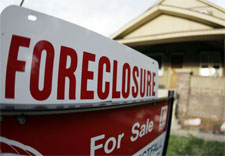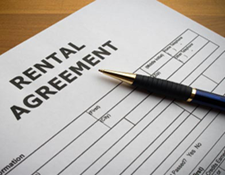 It is no secret that homeowners’ associations (“HOA”) are run and managed through the funds of monthly HOA assessments (“Fees”), and more often than not, HOA’s hire and retain debt collection firms to collect on past due Fees from delinquent members of the community. Sometimes, this leads HOA’s to lose large amounts of money in collection costs and write-offs (of “bad debt”) due to homeowner challenges under the Federal Debt Collection Practices Act (“FDCPA” or “Act”). The FDCPA provides protection to consumers (e.g., homeowners) from abusive debt collection practices by placing a myriad of procedures and limitations of which all debt collection firms must abide by, unless said firm solely recoups debt via non-judicial foreclosure, in which case the firm will only be subject to FDCPA § 1692f(6), discussed in detail further below. This was the U.S. Supreme Court’s holding in Dennis Obduskey v. McCarthy & Holthus LLP, No. 17-CV-1307, 2019 WL 1264579 (March 20, 2019).
It is no secret that homeowners’ associations (“HOA”) are run and managed through the funds of monthly HOA assessments (“Fees”), and more often than not, HOA’s hire and retain debt collection firms to collect on past due Fees from delinquent members of the community. Sometimes, this leads HOA’s to lose large amounts of money in collection costs and write-offs (of “bad debt”) due to homeowner challenges under the Federal Debt Collection Practices Act (“FDCPA” or “Act”). The FDCPA provides protection to consumers (e.g., homeowners) from abusive debt collection practices by placing a myriad of procedures and limitations of which all debt collection firms must abide by, unless said firm solely recoups debt via non-judicial foreclosure, in which case the firm will only be subject to FDCPA § 1692f(6), discussed in detail further below. This was the U.S. Supreme Court’s holding in Dennis Obduskey v. McCarthy & Holthus LLP, No. 17-CV-1307, 2019 WL 1264579 (March 20, 2019).
In Obduskey, the homeowner defaulted on his mortgage payment, causing the lender to retain McCarthy & Holthus LLP (“Firm”)—a debt collection firm that solely recoups debt via non-judicial foreclosure—to foreclose on the home. The homeowner, Dennis Obduskey, brought an action against the Firm to challenge the foreclosure on the basis of alleged violations under the Act, among other things; in particular, Section 1692g(b). In short, Section 1692g(b) mandates a debt collector to cease all collection efforts and verify the debt it is attempting to collect if a debtor challenges/disputes the debt.
The Court, in agreement with the lower courts, ruled in favor of the Firm and dismissed the case against same on the basis that the Act (i.e., § 1692g(b)) did not apply to the Firm as it was not a “debt collector” under the Act’s primary definition (un-emphasized portion):
The term “debt collector” means any person who uses any instrumentality of interstate commerce or the mails in any business the principal purpose of which is the collection of any debts, or who regularly collects or attempts to collect, directly or indirectly, debts owed or due or asserted to be owed or due another…For the purpose of section 1692f(6) of this title, such term [“debt collector”] also includes any person who uses any instrumentality of interstate commerce or the mails in any business the principal purpose of which is the enforcement of security interests.
(FDCPA § 1692a(6).) (Emphasis added.) The Court found that Section 1692f(6) of the Act was the only section applicable to the Firm as it fell under the “limited purpose definition” of “debt collector” (“LPD”)—section emphasized above—as its sole method of recouping debt was by enforcing security interests held in personal/real property through non-judicial means (e.g., non-judicial foreclosure), exempting the Firm from the rest of the Act.
 HOA Lawyer Blog
HOA Lawyer Blog


 California is currently facing a serious shortage of affordable housing. The housing crunch is impacting individuals and businesses in all parts of the state. Businesses are having trouble attracting and retaining employees and individuals face longer commute times and overcrowding, among a host of other issues.
California is currently facing a serious shortage of affordable housing. The housing crunch is impacting individuals and businesses in all parts of the state. Businesses are having trouble attracting and retaining employees and individuals face longer commute times and overcrowding, among a host of other issues. Be sure to check out Steve Tinnelly’s latest article he authored for the “OC View,” an educational bi-monthly magazine published by the
Be sure to check out Steve Tinnelly’s latest article he authored for the “OC View,” an educational bi-monthly magazine published by the  Our
Our 
 Our
Our  *New Library Article
*New Library Article

 *New Resource
*New Resource